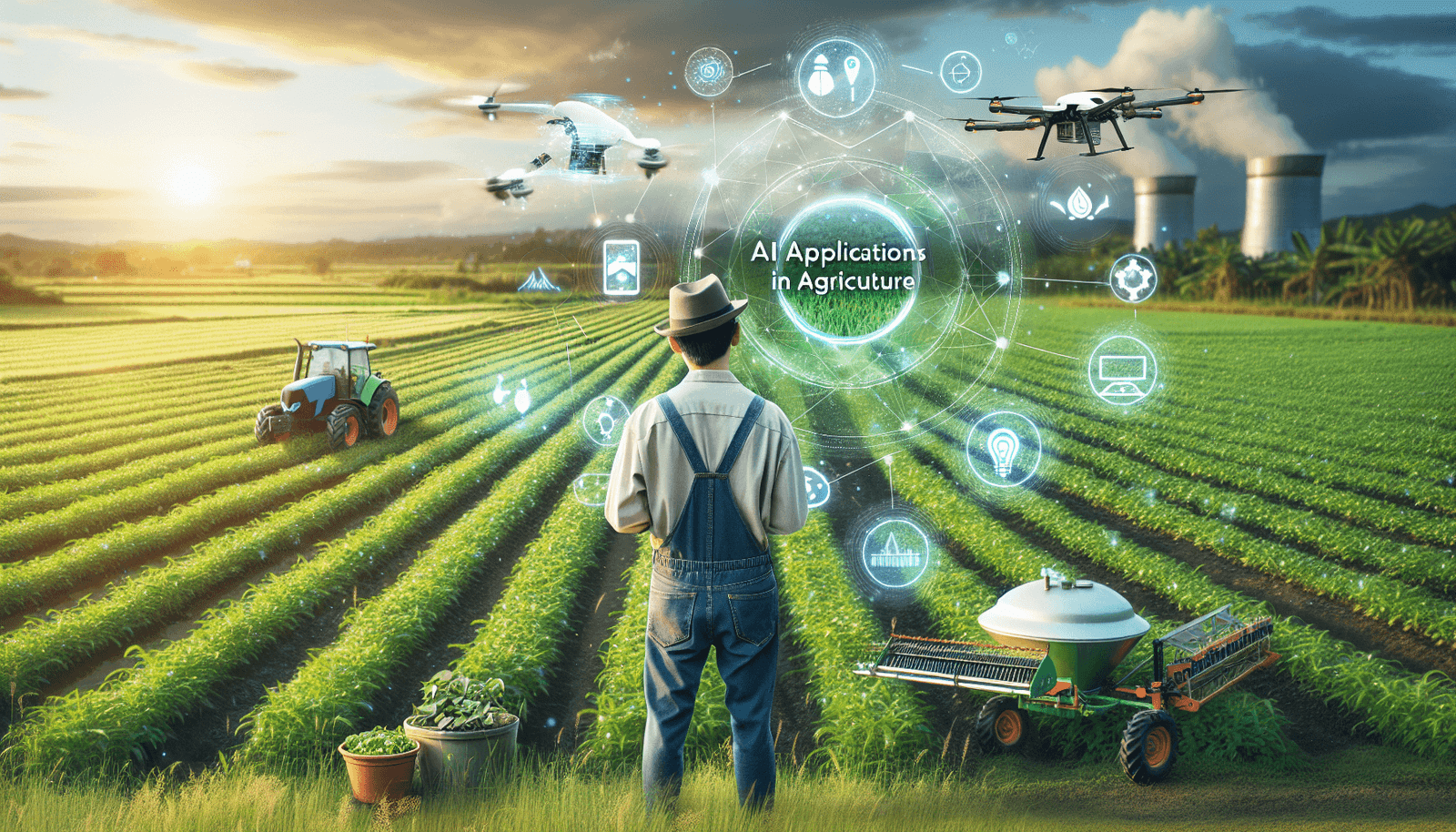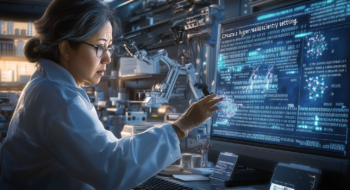AI Applications in Agriculture: The Future of Smart Farming
In the ever-evolving landscape of agriculture, the integration of artificial intelligence (AI) is revolutionizing the way farmers operate, making farming more efficient, sustainable, and productive. Here’s a deep dive into how AI, precision farming, and farm automation are transforming the agricultural sector.
The Role of AI in Agriculture
AI is not just a buzzword in agriculture; it is a game-changer. Here are some key ways AI is impacting the industry:
Data-Driven Decisions
AI enables farmers to make data-driven decisions by analyzing vast amounts of data from various sources, including IoT sensors, weather reports, and satellite images. This data is processed to provide real-time insights into soil health, crop conditions, and market trends, allowing farmers to optimize their farming practices.
Predictive Analytics
Predictive analytics, powered by AI, helps farmers forecast weather conditions, predict crop yields, and identify the optimal times for sowing and harvesting. This reduces crop losses and enhances decision-making, making farming more predictable and efficient.
Precision Farming: Maximizing Yields and Minimizing Resources
Precision farming, a cornerstone of smart agriculture, leverages AI to optimize resource use and maximize yields.
Optimizing Irrigation Systems
AI-based irrigation systems use IoT sensors to monitor soil moisture levels and weather conditions, adjusting water application in real-time. This approach conserves water, reduces costs, and promotes healthier crop growth.
Crop and Soil Monitoring
AI-driven systems monitor crop and soil health through computer vision and machine learning algorithms. These systems detect anomalies such as nutrient deficiencies, pest infestations, and diseases early, allowing for prompt action and minimizing damage.
Automated Crop Management
Technologies like Blue River Technology’s “See & Spray” use machine learning to differentiate between crops and weeds, enabling precise herbicide application. This reduces chemical usage by up to 90% in some cases, cutting down on chemical waste and environmental impact.
Farm Automation: Enhancing Efficiency and Sustainability
Farm automation is another critical area where AI is making significant strides.
Agricultural Robots
Robots equipped with AI, such as John Deere’s 8R autonomous driving tractors, are streamlining farming tasks. These robots can perform tasks like autonomous weeding and harvesting, reducing labor costs and increasing productivity.
UAVs and Drones
AI-powered drones fly over fields, capturing photos that are then analyzed by machine learning algorithms to detect issues such as discolored leaves, indicating potential disease or nutrient deficiency. This early detection allows for timely interventions, reducing crop losses and pesticide use.
Sustainability and Environmental Impact
AI in agriculture is not just about increasing efficiency; it also plays a crucial role in promoting sustainable farming practices.
Resource Optimization
AI helps in optimizing the use of resources such as water and nutrients. Precision farming powered by AI ensures that these resources are used optimally, reducing waste and environmental impact.
Reduced Chemical Use
AI-driven systems reduce the use of herbicides, pesticides, and fertilizers by applying them precisely where needed. This approach minimizes chemical waste and protects the environment.
Climate Adaptation
AI helps farmers adapt to climate changes by predicting weather patterns and advising on the best farming practices to mitigate the effects of adverse weather conditions.
Cost Savings and Efficiency
The economic benefits of AI in agriculture are substantial.
Labor Cost Reduction
AI addresses labor shortages by automating labor-intensive tasks such as weeding and harvesting. This increases productivity and reduces labor costs.
Market Analysis and Timing
AI provides data-driven insights into market demand and optimal farm timing, leading to increased yields with less resource outlay.
Real-World Applications and Success Stories
Several companies and technologies are already making a significant impact in the field.
IBM’s Watson Decision Platform
IBM’s Watson Decision Platform for Agriculture analyzes weather data, satellite images, and other inputs to provide farmers with actionable insights. This helps in precisely applying water, fertilizers, and pesticides, reducing overuse and runoff.
Climate FieldView
Climate FieldView’s platform leverages AI to offer personalized planting advice, optimize seeding rates, and provide guidance on the best times to water and apply fertilizers and pesticides. This predictive capability allows farmers to make more informed decisions, increasing crop productivity and reducing resource waste.
Conclusion
The integration of AI in agriculture is transforming traditional farming practices into smart, efficient, and sustainable operations. With AI, farmers can make better decisions, predict the future, and improve their farms significantly.







